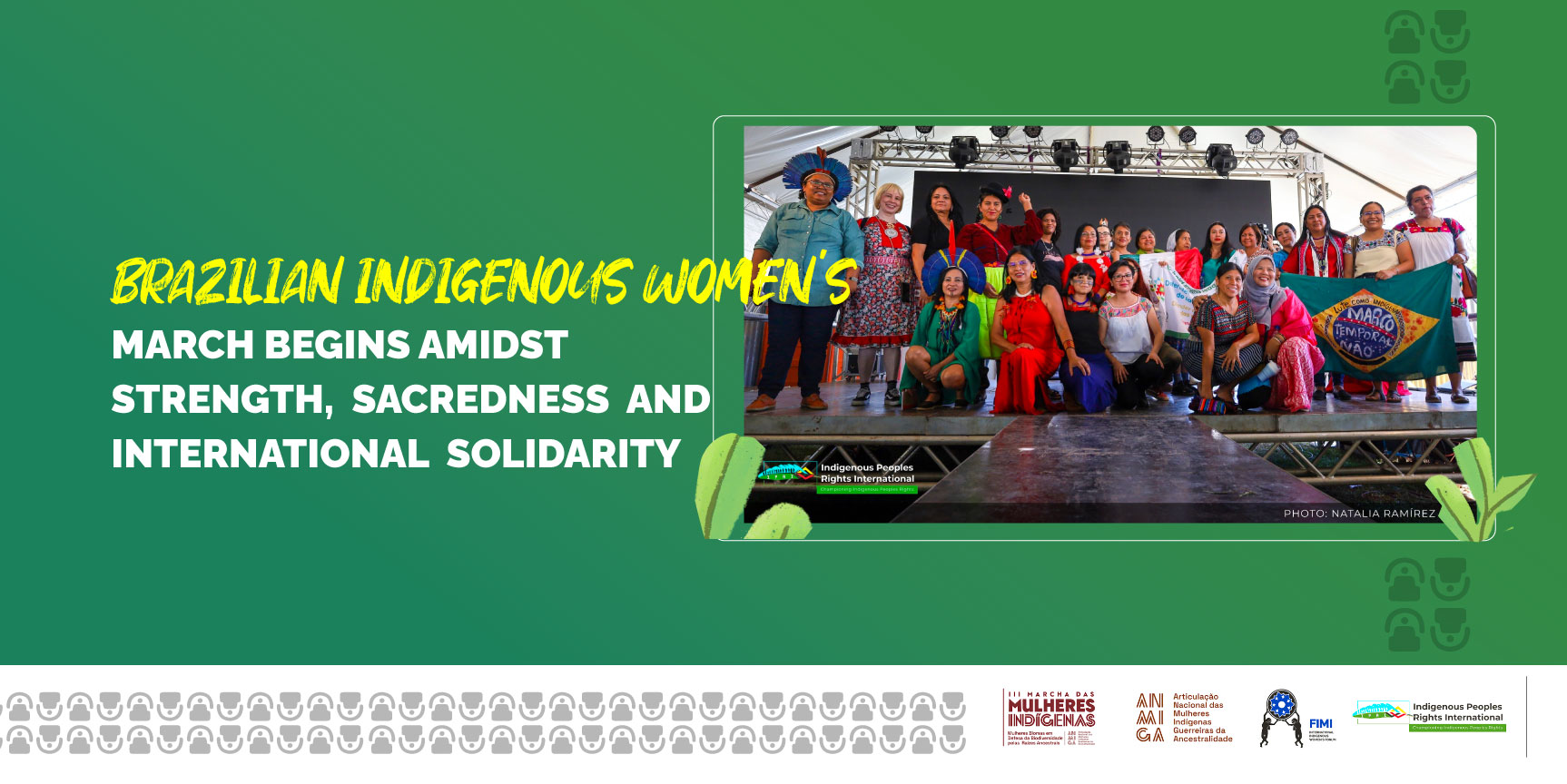
Brasilia, Brazil, September 11 2023 .The first day of the March of Indigenous Women - Women Ecosystem in Defense of Biodiversity through Ancestral Roots already showed the power of the movement that is transforming Brazil.
The more than 4 000 women camped in the Funarte square in the federal capital city, convened by the National Articulation of Ancestral Indigenous Warrior Women (ANMIGA) and coming from the six Brazilian biomes, began the day amidst their powerful dances and songs, introducing the delegations that are here to tell the state that "Never again a Brazil without indigenous women", as one of the presenters said.
This is the third edition of the march. On this occasion, under the co-organization of ANMIGA, the Ministry of Indigenous Peoples, the International Indigenous Women's Forum and Indigenous Peoples Rights International, a delegation composed of 22 indigenous women from the six regions of the world - Asia, Latin America, Africa, Arctic, Pacific and North America - was present to show solidarity with the exemplary Brazilian indigenous women, who today have a presence in Congress, in the Executive Branch and also in the streets.
"I belong to the indigenous Sámi people of the Arctic, and it is important that we too participate in the Indigenous Women's March in Brazil. This is an opportunity for indigenous sisters around the world to build solidarity and share ideas to continue the work of strengthening indigenous rights in all corners of the world," said Pirita Näkkäläjärvi, a member of the Sámi Parliament in Finland.
The international delegates expressed their solidarity with the indigenous women of Brazil and highlighted the commonalities between their struggles as daughters and sons of the Earth, against violence and in favor of life and biodiversity.
At midday, a river of more than five hundred indigenous women gathered at the National Congress to support the indigenous federal congresswoman Célia Xakriabá. The congresswoman, who is the first indigenous federal deputy elected in Minas Gerais, paid tribute to the March and presented a legislative initiative for the protection of indigenous women and girls against violence against them and their territories, in the presence of the president of the National Indian Foundation (FUNAI), Joenia Wapichana, and the Executive Director of ANMIGA, Braulina Baniwa.
Meanwhile, the women campers held thematic discussions by biome or ecosystem, on climate emergency, biodiversity and reforestation.
The international delegation went to the National Justice Council to exchange experiences on access to justice for indigenous peoples, especially regarding human rights violations, criminalization, persecution and harm to indigenous women. The magistrates spoke about their efforts to create a human rights observatory for indigenous peoples and the translation of the Constitution into indigenous languages. The international delegation drew attention to CEDAW General Recommendation 39 on Indigenous Women and Girls as an instrument to be used.
Presenting a brochure against violence against Indigenous Women and Girls, Puyr Tembé, Secretary of Indigenous Peoples in Pará, pointed out that in Brazil there are more than 1.6 million indigenous people and more than 365 peoples, but that there are commonalities, such as violence against indigenous women and girls and racism against them. She affirmed that indigenous women will continue in their efforts to resist and build non-violence through memories and ancestralities. "A new time is being born, in which we are not going to accept violence, we are going to fight it. We are going to say no more violence against us, against our existence, we want to be respected as a woman warrior, a woman of power, a woman who builds dreams", said the leader.
Cristina Coc, IPRI's Advocacy Coordinator, who co-published the booklet with ANMIGA, pointed out that the international organization is committed to continue supporting its partner organizations: "We always want to be close to you working; you are leading in a different way".





